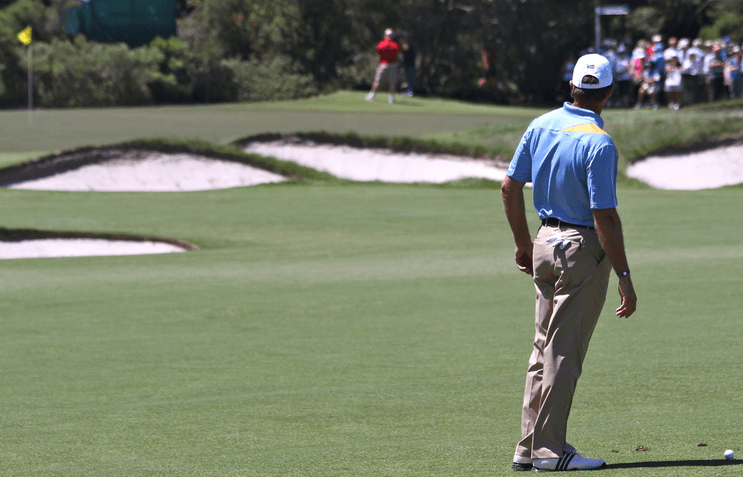
Do You Suffer From Golfer’s Attention Deficit Disorder?
Sport scientists interested in extraordinary athletic performance have studied the phenomenon known as “The Zone” for some time and have isolated a number of factors consistent with every great performance. These factors remain the same for extraordinary performances regardless of the endeavor, including golf. Unfortunately, most golfers rarely access this elevated performance state and when they do its only because they stumble into it accidentally. The major reason for this is the inability to focus one’s attention (concentration) to the task at hand, completely and easily.
Is difficulty with concentration holding you back? Ask yourself the following questions. Do you experience problems producing a fundamentally sound swing? Does your swing disintegrate into a series of slashes, lunges, and swats during practice or play even though you’re told your practice swing is fundamentally sound? Do you perform well one day, only to fall completely apart the next? Are you inconsistent? Are there situations – like hitting over water – that cause you difficulty?
If you experience any of these problems you may be suffering from GADD – Golfer’s Attention Deficit
Disorder. GADD is not a neurological disorder but lack of appropriate training. GADD occurs for many reasons, including hectic lifestyles, negative programming, lack of knowledge about the skill being performed, and inappropriate practice strategies. These factors not only keep you from playing in The Zone, they prevent you from developing sound physical fundamentals.
The ability to direct your attention to a single thought is extremely important in golf. Whether you are a beginner just wanting to develop some basic fundamentals or an experienced player seeking to improve, you must develop the proper concentration (focus). Concentration involves learning to direct your attention to the task at hand. In golf, focus differs from one skill to the next (i.e., focus for the full swing differs from short putts, differs from long putts, differs from short game, etc.). It also requires that you
eliminate competing thoughts, stress, and anxiety that direct your attention away from the task at hand.
While many golfers receive instruction on golf’s physical fundamentals, very few are ever taught how to direct their attention for the skill being learned or how to eliminate competing thoughts, stress and anxiety. They are assumed to already know how to do that or will learn as a result of their physical practice. Nothing could be further from the truth.
I have isolated numerous situations in which inappropriate (or lack thereof) focus causes golfers’ performance problems and have developed practice strategies which require less than 15 – 30 minutes of daily practice, many of which can be incorporated into your physical practice, to overcome these concentration deficiencies. They are listed below. In subsequent postings each of these issues will be
addressed.
- Poor physical fundamentals
- Great practice swing, poor hitting swing
- Better in practice than when playing and/or competing
- First tee nerves
- Pressure
- Late round letdowns
- General thought and emotional control problems
Which ones can you identify with?
Photo by Hone Morihana



I am not so sure I agree with Dr. Piparo’s assertion that, “GADD is not a neurological disorder but lack of appropriate training.” I am 60 years old and have been dealing with bi-polar depression since my 20’s. In spite of this, I have been a pretty solid golfer for years, with an index as low as 2.5. I had developed an aesthetic and reliable swing and an even better short game. Over the last decade, however, I have noticed a drastic deterioration in my ability to concentrate on the course. I am in the gym four days a week and I still put in hours on my swing and short game. I excelled at many sports in my youth, but golf has been my focus as an adult. Golfing buddies that I have played with for years scratch their heads over how uncoordinated I look now compared to a few years back. They don’t understand it when I say I forget how to make a golf swing.